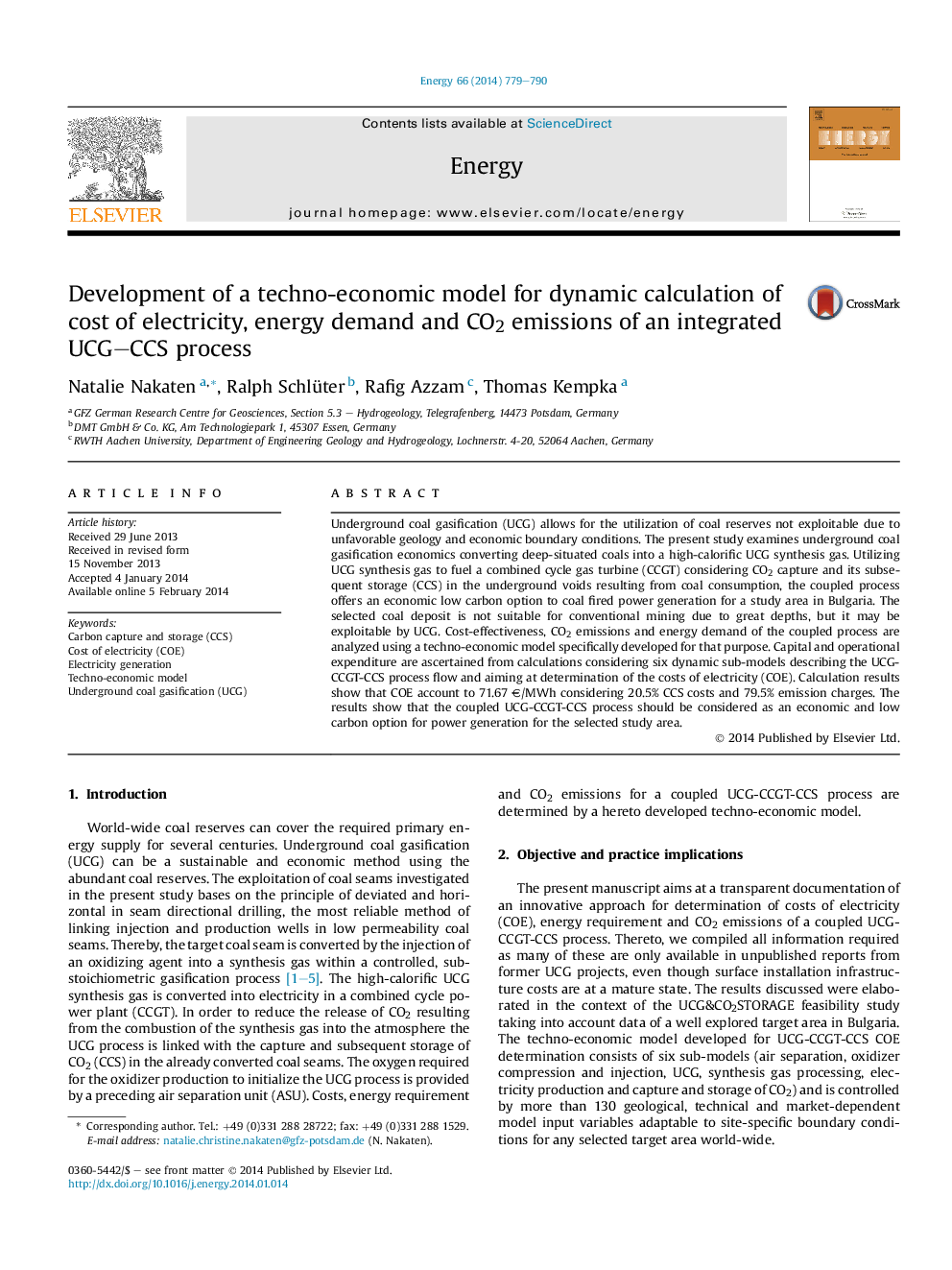| Article ID | Journal | Published Year | Pages | File Type |
|---|---|---|---|---|
| 8078568 | Energy | 2014 | 12 Pages |
Abstract
Underground coal gasification (UCG) allows for the utilization of coal reserves not exploitable due to unfavorable geology and economic boundary conditions. The present study examines underground coal gasification economics converting deep-situated coals into a high-calorific UCG synthesis gas. Utilizing UCG synthesis gas to fuel a combined cycle gas turbine (CCGT) considering CO2 capture and its subsequent storage (CCS) in the underground voids resulting from coal consumption, the coupled process offers an economic low carbon option to coal fired power generation for a study area in Bulgaria. The selected coal deposit is not suitable for conventional mining due to great depths, but it may be exploitable by UCG. Cost-effectiveness, CO2 emissions and energy demand of the coupled process are analyzed using a techno-economic model specifically developed for that purpose. Capital and operational expenditure are ascertained from calculations considering six dynamic sub-models describing the UCG-CCGT-CCS process flow and aiming at determination of the costs of electricity (COE). Calculation results show that COE account to 71.67 â¬/MWh considering 20.5% CCS costs and 79.5% emission charges. The results show that the coupled UCG-CCGT-CCS process should be considered as an economic and low carbon option for power generation for the selected study area.
Keywords
Related Topics
Physical Sciences and Engineering
Energy
Energy (General)
Authors
Natalie Nakaten, Ralph Schlüter, Rafig Azzam, Thomas Kempka,
